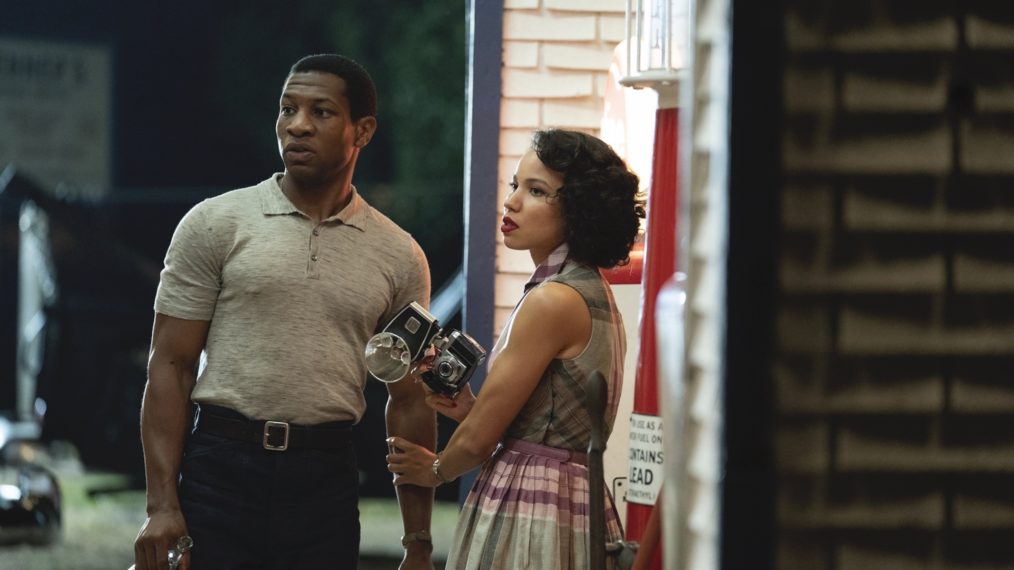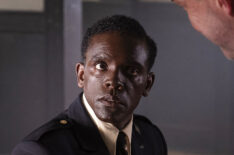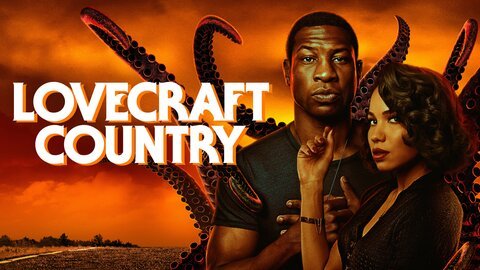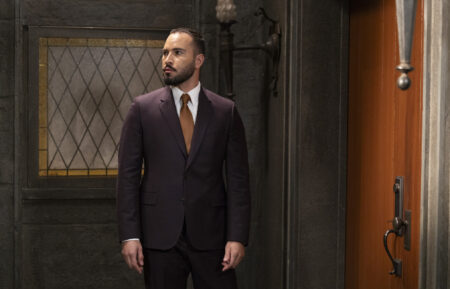Who Was H.P. Lovecraft, the Disgraced Namesake of HBO’s ‘Lovecraft Country’?

The late pulp author H.P. Lovecraft has countless fans across the world, many of are whom conflicted in their fandom. After all, Lovecraft is one of the biggest names in horror fiction, but the man espoused virulent racism. And the upcoming HBO drama Lovecraft Country — due to premiere in August — holds both those realities in its allegorical premise.
Howard Phillips Lovecraft was born in Providence, Rhode Island, in 1890. According to Biography, his father, a traveling salesman, became mentally ill as a result of untreated syphilis and died as a patient of a psychiatric hospital while Lovecraft was still a young boy.
As a child, Lovecraft consumed the works of Edgar Allen Poe and became fascinated with astronomy, two interests that undoubtedly inspired his later “cosmic horror” stories. Lovecraft never graduated high school or attended college, but he joined the United Amateur Press Association in 1914 and launched the magazine The Conservative the following year. He soon shifted his focus to fiction and sold stories to the horror magazine Weird Tales in 1923. That same magazine published The Call of Cthulhu, one of his best-known stories, in 1928.
In 1924, Lovecraft married Sonia Greene, whom he met at a convention three years earlier. Beset by financial difficulties, the couple split two years later, according to Wired. After falling further into poverty, Lovecraft died of cancer in 1937 at the age of 46.
Though he never found success during his lifetime, Lovecraft became one of the most influential authors of so-called “weird fiction.” Cthulhu, a cosmic monster with an octopus-like head, is perhaps Lovecraft’s best-known creation and the centerpiece of the shared universe known as the Cthulhu Mythos. Cthulhu has popped up in films, TV shows, rock songs, board games, video games, species names, and even political elections.
“Now that time has given us some perspective on his work,” Stephen King told American Heritage magazine in 1995, “I think it is beyond doubt that H.P. Lovecraft has yet to be surpassed as the twentieth century’s greatest practitioner of the classic horror tale.”
But Lovecraft also spewed racism. In his letters, he called Jewish people “hook-nosed, swarthy, guttural-voiced aliens,” wished death upon the “bastard mess of stewing mongrel flesh” of New York City’s Chinatown, and complained about the city’s “flabby, pungent, grinning, chattering n—rs,” according to The Atlantic. He defended white people’s “lynching [and] intimidation” of Black individuals and decreed that integration would only result in “pain and disaster,” per Literary Hub. And in a 1912 poem with the N-word in its very title, he derided Black people as “beasts … in semi-human figure” who are “filled [with] vice.”
For forty years, the trophy of the World Fantasy Award — one of the most prestigious prizes for fantasy authors — was a bust of Lovecraft. Nnedi Okorafor, the first Black person to win a WFA for Best Novel, blogged about her conflicting feelings about the honor in 2011. “A statuette of this racist man’s head is in my home. A statuette of this racist man’s head is one of my greatest honors as a writer.” In 2015, WFA organizers announced the trophy would bear a new design.
Now Lovecraft’s legacy will be re-examined onscreen with the HBO drama Lovecraft Country, created by Misha Green, executive-produced by Jordan Peele and J.J. Abrams, and based on the 2016 Matt Ruff book of the same name.
In the show, Atticus Freeman (Jonathan Majors), his friend Letitia Dandridge (Jurnee Smollett-Bell), and his uncle George Black (Courtney B. Vance) embark on a road trip to find his missing father (Michael K. Williams), and the group “struggle to survive and overcome both the racist terrors of white America and the terrifying monsters that could be ripped from a Lovecraft paperback,” according to the logline.
In a 2016 interview with Women Write About Comics, Ruff explained that he wanted to create a story like The X-Files or Kolchak: The Night Stalker but with protagonists of color. “I came up with the idea for it to be about this black family that owned a travel agency in the 1950s and published a guide for black travelers in the Jim Crow-era U.S.,” he said. “My lead character, Atticus, was going to be a field researcher whose job was to drive around the country, looking for hotels and restaurants that would serve him. He and his uncle were also going to be pulp fiction nerds going through all of the challenges of loving a genre that doesn’t always love you back when you’re African-American.”
In the trailers released so far, the white characters — white cops, in particular — are as threatening as any of the paranormal entities. The images of their aggression are all too timely, coming on the heels of George Floyd’s killing and other recent flashpoints of police brutality.
Especially now, the world needs stories that expose racism and center Black experiences — with or without paranormal monsters. And if a racist and xenophobic author happens to roll in his grave, so much the better.
From TV Guide Magazine
Crime, Comedy & Convenience Stores: Unwrapping Hulu's 'Deli Boys' With the Cast
Cupcakes, corndogs…and cocaine?! Two brothers find themselves in a hilarious pickle when they inherit an unseemly bodega biz in Hulu’s new comedy Deli Boys. Find out how The Sopranos and Real Housewives of Orange County influenced the cast. Read the story now on TV Insider.










